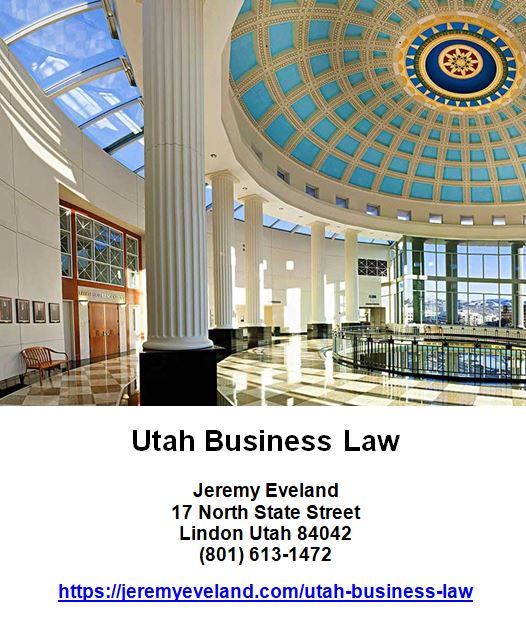Estate Planning Lawyer
-
Wills, Trusts, Administration
- Introduction
- Common Mistakes to Avoid When Working with an Estate Planning Lawyer
- How to Find the Right Estate Planning Lawyer for Your Needs
- The Benefits of Working with an Experienced Estate Planning Lawyer
- Understanding the Estate Planning Process and What to Expect
- What to Look for When Choosing an Estate Planning Lawyer
- Last Will and Testament in Utah
- Advanced Health Care Directives
- Revocable Living Trusts to Avoid Probate
- Durable General Powers of Attorney
- Q&A
“Secure Your Future with an Estate Planning Lawyer”
Introduction
Estate planning lawyers are legal professionals who specialize in helping individuals and families plan for the future. They provide advice on how to best manage and protect assets, plan for retirement, and ensure that the wishes of the deceased are carried out. Estate planning lawyers also help clients create wills, trusts, and other documents to ensure that their wishes are followed. They can also help with tax planning, asset protection, and other legal matters related to estate planning. Estate planning lawyers are an invaluable resource for those looking to protect their assets and ensure that their wishes are followed.
Common Mistakes to Avoid When Working with an Estate Planning Lawyer
1. Not Being Prepared: Before meeting with an estate planning lawyer, it is important to have all of the necessary documents and information ready. This includes financial documents, such as bank statements, investment accounts, and insurance policies, as well as any other documents that may be relevant to the estate planning process.
2. Not Understanding Your Goals: It is important to have a clear understanding of your goals and objectives before meeting with an estate planning lawyer. This will help the lawyer to create a plan that meets your needs and objectives.
3. Not Being Honest: It is important to be honest and open with your estate planning lawyer. This includes disclosing any assets or liabilities that may be relevant to the estate planning process.
4. Not Being Clear: When communicating with your estate planning lawyer, it is important to be clear and concise. This will help the lawyer to understand your wishes and create a plan that meets your needs.
5. Not Following Through: Once the estate planning process is complete, it is important to follow through with the plan. This includes making sure that all documents are properly executed and that all assets are properly transferred.
6. Not Updating Your Plan: As your life changes, it is important to update your estate plan. This includes making sure that all documents are up to date and that all assets are properly transferred.
7. Not Working with a Professional: It is important to work with a qualified and experienced estate planning lawyer. This will ensure that your estate plan is properly created and that all of your wishes are met.
How to Find the Right Estate Planning Lawyer for Your Needs
Finding the right estate planning lawyer for your needs can be a daunting task. It is important to take the time to research and find a lawyer who is experienced and knowledgeable in the area of estate planning. Here are some tips to help you find the right estate planning lawyer for your needs.
1. Research: Start by researching estate planning lawyers in your area. Look for lawyers who specialize in estate planning and have experience in the area. Check out their websites and read reviews from past clients.
2. Ask for Referrals: Ask family and friends for referrals to estate planning lawyers they have used in the past. This can be a great way to find a lawyer who is experienced and knowledgeable in the area.
3. Interview: Once you have narrowed down your list of potential lawyers, it is important to interview them. Ask questions about their experience, fees, and services they provide. This will help you determine if they are the right fit for your needs.
4. Check Credentials: Make sure the lawyer you choose is licensed and in good standing with the state bar association. You can also check with the Better Business Bureau to make sure there are no complaints against the lawyer.
5. Get a Written Agreement: Once you have chosen a lawyer, make sure to get a written agreement outlining the services they will provide and the fees they will charge. This will help ensure that both parties are clear on the terms of the agreement.
By following these tips, you can find the right estate planning lawyer for your needs. It is important to take the time to research and find a lawyer who is experienced and knowledgeable in the area of estate planning. With the right lawyer, you can ensure that your estate is handled properly and your wishes are carried out.
The Benefits of Working with an Experienced Estate Planning Lawyer
When it comes to estate planning, it is important to work with an experienced estate planning lawyer. An experienced estate planning lawyer can provide invaluable guidance and advice to ensure that your estate plan is tailored to your individual needs and goals. Here are some of the benefits of working with an experienced estate planning lawyer.
1. Knowledge and Expertise: An experienced estate planning lawyer has the knowledge and expertise to help you create an estate plan that meets your needs and goals. They understand the complexities of estate planning and can provide advice on the best strategies for protecting your assets and ensuring that your wishes are carried out.
2. Comprehensive Planning: An experienced estate planning lawyer can help you create a comprehensive estate plan that covers all of your assets and liabilities. They can help you create a plan that includes wills, trusts, powers of attorney, and other documents to ensure that your wishes are carried out.
3. Tax Planning: An experienced estate planning lawyer can help you minimize your tax liability and maximize the value of your estate. They can provide advice on strategies to reduce taxes and ensure that your estate is distributed according to your wishes.
4. Asset Protection: An experienced estate planning lawyer can help you protect your assets from creditors and other potential liabilities. They can provide advice on strategies to protect your assets and ensure that your wishes are carried out.
5. Peace of Mind: Working with an experienced estate planning lawyer can provide peace of mind knowing that your estate plan is tailored to your individual needs and goals. They can provide advice and guidance to ensure that your wishes are carried out and that your assets are protected.
By working with an experienced estate planning lawyer, you can ensure that your estate plan is tailored to your individual needs and goals. They can provide invaluable advice and guidance to ensure that your wishes are carried out and that your assets are protected.
Understanding the Estate Planning Process and What to Expect
Estate planning is an important process that helps individuals and families prepare for the future. It involves creating a plan for how your assets and property will be managed and distributed after you pass away. Estate planning can help ensure that your wishes are carried out and that your loved ones are taken care of.
The estate planning process begins with an assessment of your current financial situation. This includes looking at your assets, debts, and any other financial obligations. You will also need to consider your goals for the future and how you want your estate to be managed.
Once you have a clear understanding of your financial situation, you can begin to create an estate plan. This plan should include a will, trust, and other documents that will help ensure that your wishes are carried out. You may also need to create a power of attorney document, which will allow someone to manage your affairs if you become incapacitated.
The next step in the estate planning process is to meet with an attorney. An attorney can help you create the necessary documents and ensure that they are legally binding. They can also provide advice on how to best manage your estate and provide guidance on any tax implications.
Once your estate plan is in place, you will need to keep it up to date. This includes making sure that any changes in your financial situation are reflected in your estate plan. You should also review your estate plan periodically to make sure that it still meets your needs.
The estate planning process can be complex and time-consuming. However, it is an important step in ensuring that your wishes are carried out and that your loved ones are taken care of. Working with an experienced attorney can help make the process easier and ensure that your estate plan is legally sound.
What to Look for When Choosing an Estate Planning Lawyer
When choosing an estate planning lawyer, it is important to consider several factors. Here are some key points to consider when selecting an estate planning lawyer:
1. Experience: It is important to choose an estate planning lawyer who has experience in the field. Look for a lawyer who has been practicing estate planning law for several years and has a good track record of successful cases.
2. Reputation: Check the lawyer’s reputation by asking for references from past clients and researching online reviews.
3. Communication: Make sure the lawyer is easy to communicate with and is willing to answer your questions.
4. Fees: Ask about the lawyer’s fees and make sure they are reasonable.
5. Specialization: Make sure the lawyer specializes in estate planning law and is familiar with the laws in your state.
By considering these factors, you can ensure that you choose an experienced and reputable estate planning lawyer who is easy to communicate with and offers reasonable fees.
Last Will and Testament in Utah
This is the Last Will and Testament of [Name], of [City], [County], [State], made this [date].
I, [Name], being of sound mind and body, do hereby make, publish, and declare this to be my Last Will and Testament, hereby revoking any and all Wills and Codicils by me at any time heretofore made.
I direct that all of my just debts and funeral expenses be paid as soon as possible after my death.
I give, devise, and bequeath all of my property, both real and personal, of every kind and nature, and wheresoever situated, to my [spouse/children/heirs], in equal shares, share and share alike.
I appoint [Name] to be the Executor of this my Last Will and Testament.
In witness whereof, I have hereunto set my hand and seal this [date].
[Name]
Signed, sealed, published, and declared by the said [Name] as and for his Last Will and Testament in the presence of us, who, at his request, and in his presence, and in the presence of each other, have hereunto subscribed our names as witnesses.
[Witness 1]
[Witness 2]
Advanced Health Care Directives
Advanced Health Care Directives are legal documents that allow individuals to make decisions about their medical care in the event that they become unable to make decisions for themselves. These directives are important for individuals to consider, as they provide a way to ensure that their wishes are respected in the event of a medical emergency.
Advanced Health Care Directives are typically composed of two documents: a living will and a durable power of attorney for health care. A living will is a document that outlines an individual’s wishes regarding medical treatments and end-of-life care. This document can include instructions for the use of life-sustaining treatments, such as artificial nutrition and hydration, and can also include instructions for pain management and other treatments.
A durable power of attorney for health care is a document that allows an individual to appoint someone to make medical decisions on their behalf in the event that they are unable to do so. This document should include the name of the individual’s chosen representative, as well as a list of the types of decisions that the representative is authorized to make.
Advanced Health Care Directives are important documents that can help ensure that an individual’s wishes are respected in the event of a medical emergency. It is important to discuss these documents with a qualified attorney to ensure that they are properly drafted and executed. Additionally, it is important to keep copies of these documents in a safe place and to make sure that family members and health care providers are aware of their existence.
Revocable Living Trusts to Avoid Probate
A revocable living trust is a legal document that allows an individual to transfer their assets into a trust during their lifetime. This type of trust is revocable, meaning that the individual can make changes to the trust or even revoke it at any time. The trust is managed by a trustee, who is responsible for managing the assets and distributing them according to the instructions of the trust.
One of the primary benefits of a revocable living trust is that it can help to avoid probate. Probate is the legal process of distributing a deceased person’s assets according to their will. This process can be lengthy and expensive, and it can also be a source of conflict among family members. By transferring assets into a revocable living trust, the individual can avoid the probate process and ensure that their assets are distributed according to their wishes.
Another benefit of a revocable living trust is that it can provide privacy. When a will is probated, it becomes a matter of public record. This means that anyone can access the details of the will and the assets that are being distributed. With a revocable living trust, the details of the trust and the assets remain private.
Finally, a revocable living trust can provide flexibility. The individual can make changes to the trust at any time, and they can also name a successor trustee who will manage the trust after their death. This allows the individual to ensure that their assets are managed according to their wishes, even after they are gone.
Overall, a revocable living trust can be a useful tool for avoiding probate and ensuring that assets are distributed according to the individual’s wishes. It can also provide privacy and flexibility, making it an attractive option for many individuals.
Durable General Powers of Attorney
A Durable General Power of Attorney is a legal document that allows an individual to appoint another person to act on their behalf in financial and legal matters. This document is often used when an individual is unable to manage their own affairs due to illness, disability, or other circumstances.
The Durable General Power of Attorney grants the appointed individual, known as the “attorney-in-fact” or “agent”, the authority to make decisions and take actions on behalf of the individual granting the power. This includes the ability to buy and sell property, open and close bank accounts, manage investments, and make other financial decisions. The attorney-in-fact may also be authorized to make medical decisions, sign legal documents, and take other actions as specified in the document.
The Durable General Power of Attorney is a powerful document and should be used with caution. It is important to select an attorney-in-fact who is trustworthy and reliable, and who will act in the best interests of the individual granting the power. The document should also be reviewed by an attorney to ensure that it is properly drafted and meets all legal requirements.
Once the Durable General Power of Attorney is executed, it remains in effect until it is revoked or the individual granting the power passes away. It is important to keep the document in a safe place and to inform the attorney-in-fact of its existence. It is also important to review the document periodically to ensure that it still meets the individual’s needs.
Q&A
1. What is an estate planning lawyer?
An estate planning lawyer is a lawyer who specializes in helping individuals and families plan for the future by creating legal documents such as wills, trusts, and powers of attorney. They can also help with tax planning, asset protection, and other related matters.
2. What services do estate planning lawyers provide?
Estate planning lawyers provide a variety of services, including drafting wills, trusts, and powers of attorney; providing advice on tax planning; helping to protect assets; and providing guidance on estate administration.
3. How much does an estate planning lawyer cost?
The cost of an estate planning lawyer varies depending on the complexity of the estate plan and the services provided. Generally, estate planning lawyers charge an hourly rate or a flat fee for their services.
4. What should I look for when choosing an estate planning lawyer?
When choosing an estate planning lawyer, it is important to look for someone who is experienced in the area of estate planning and who is familiar with the laws in your state. It is also important to find a lawyer who is willing to take the time to understand your individual needs and goals.
5. What documents should I have prepared by an estate planning lawyer?
The most common documents prepared by an estate planning lawyer are wills, trusts, and powers of attorney. Depending on your individual needs, you may also need to have other documents prepared, such as a living will or health care directive.
6. What is the difference between a will and a trust?
A will is a legal document that outlines how a person’s assets should be distributed upon their death. A trust is a legal document that allows a person to transfer ownership of their assets to another person or entity while they are still alive.
7. What is a power of attorney?
A power of attorney is a legal document that allows a person to appoint another person to act on their behalf in certain matters. This can include making financial decisions, managing property, or making medical decisions.
8. What is probate?
Probate is the legal process of administering a deceased person’s estate. This includes collecting and distributing assets, paying debts, and resolving any disputes that may arise.
9. What is estate tax?
Estate tax is a tax imposed on the transfer of a deceased person’s assets. The amount of the tax depends on the value of the estate and the laws of the state in which the deceased person resided.
Estate Planning Lawyer Consultation
When you need legal help with Estate Planning call Jeremy D. Eveland, MBA, JD (801) 613-1472 for a consultation.
Jeremy Eveland
17 North State Street
Lindon UT 84042
(801) 613-1472
Related Posts
Business Lawyer West Jordan Utah
Irrevocable Life Insurance Trusts
What Is The Purpose Of A Business Attorney?
Business Transaction Lawyer Provo Utah
Trusted Personal Injury Attorneys in Utah
Legal Requirements to Start a Business
Real Estate Attorneys in Salt Lake City Utah
Business Contract Lawyer Riverton UT
Business Law and Intellectual Property

















